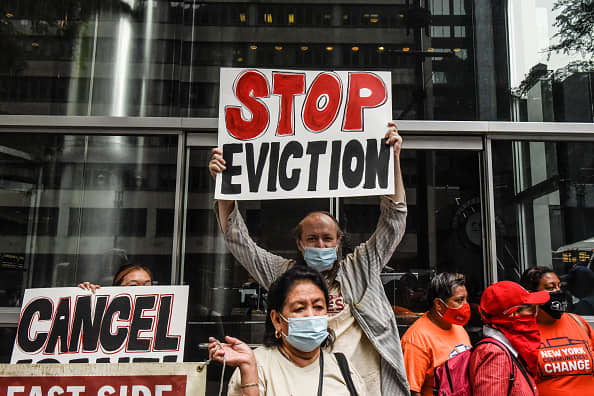Millions of Americans who remain behind on their rent could now be at risk of being pushed out of their homes after the Supreme Court rejected the Biden administration’s most recent eviction ban.
The Centers for Disease Control and Prevention announced its new eviction ban at the start of this month, a few days after its previous moratorium had expired. That order covered renters in areas experiencing “substantial” and “high” levels of coronavirus cases, and was supposed to be in effect until Oct. 3.
The Supreme Court’s ruling on Thursday that the CDC had exceeded its authority with the ban means renters are no longer protected by it.
More from Personal Finance:
To feel financially secure, Americans need $500,000 in savings, survey finds
If still working when you turn 65, be sure to avoid costly Medicare mistakes
White, Black and Hispanic Americans retire early for different reasons
The health agency’s attempts at stopping evictions amid the pandemic have faced numerous legal challenges and property owners have criticized the policies, saying they can’t afford to continue housing people for free.
Advocates, however, slammed the lifting of the ban.
“The tragic, consequential and entirely avoidable outcome of this ruling will be millions of people losing their homes this fall and winter, just as the delta variant ravages communities and lives,” said Diane Yentel, president and CEO of the National Low Income Housing Coalition.
More than 11 million Americans remain behind on their rent, according to a recent analysis by The Center on Budget and Policy Priorities. And nearly a quarter of Black renters are in arrears.
Worried about eviction? You still have options
If you haven’t already, apply for rental assistance, experts say.
Congress has allocated more than $45 billion in rental assistance to address the crisis, and only a sliver of the money has been spent so far. If you’re approved for the relief, you could get up to 18 months of rent covered.
Just applying can help you stay in your home longer.
At least four states — Massachusetts, Nevada, New York and Oregon — are temporarily banning evictions against those with a pending rental assistance application.
The National Low Income Housing Coalition has a state-by-state list of the 493 programs giving out the federal money. The Consumer Financial Protection Bureau also has a tool to help you apply for rental relief.
If your landlord is refusing to cooperate, about a quarter of the programs now allow the assistance to go directly to you.
Also, familiarize yourself with your other rights.
Although the CDC’s ban no longer applies, a number of states and cities have their own eviction moratoriums. Renters in New Jersey, for example, can’t be kicked out of their homes until January. California renters are protected until October.
If your landlord has moved to evict you, try to get a lawyer. You can find low-cost or free legal help with an eviction proceeding in your state at Lawhelp.org.
In some places, including Washington, Maryland and Connecticut, tenants facing eviction now have a right to counsel.
